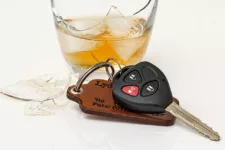In most states, a driver is considered to be driving under the influence of alcohol if their Blood Alcohol Concentration (BAC) is 0.08 g/dl or higher.
According to experts, drinking three beers in one hour is all it takes for a person weighing 100lbs to reach a 0.08g/dl of blood alcohol concentration. That might not sound like as much alcohol to impair a driver, but it is enough to get you in trouble for DUI.
Consequences Of A DUI Conviction
Drinking Under the Influence or DUI can either be a misdemeanor or a felony, depending on the underlying circumstances. A conviction with a DUI can result in possible jail terms and fines at varying degrees depending on whether the offense is a misdemeanor or a felony.
While jail time and fines can be severe, they are just one part of the consequences that follow a DUI conviction. Other consequences include:
- A permanent criminal record for your conviction
- Loss of driving privileges
- Increased insurance premiums
- Probations
- Having to install an ignition interlock device in your vehicle
After a conviction, it is normal for people to suffer anxiety, depression, and a host of emotions such as sadness and guilt in light of the pain caused by their actions and the consequences resulting from a conviction. The good news is, there is hope.
Tips To Help You Bounce Back After A DUI Conviction
The first tip toward getting back up after a DUI conviction is to own up to your actions. You may feel like you want to put the experience behind you and assume it never happened. Unfortunately, such an approach will only lead to further problems down the road; the best practice is to admit you messed up and take deliberate steps toward ensuring you don’t repeat the mistake.
After a stressful experience such as a DUI conviction, you may feel the urge to drink away your problems. That may not be a good idea considering that drinking was the cause of your DUI charges. Staying sober will help show the court that you are committed to change. Additionally, if your family is angry because of your drunk driving problem, staying sober can help show that you are remorseful for your actions.
It is common for convicted DUI offenders to feel bad about themselves, especially if their offenses led to the injury or death of another person. However, wallowing in sorrow won’t help; talking to your family and friends about your feelings can help you cope faster. You may also have to join support groups of persons with similar circumstances or seek professional help from a counselor.
Face The Consequences Head-On
After a conviction, the consequences follow; it is essential to face the aftermath of a DUI conviction head-on and work out a better life for yourself on the other side. Facing your consequences head-on is one step towards owning up to your mistakes.
Be sure to meet all the court directives such as alcohol education programs and court fees and avoid cutting corners such as no shows on court dates or driving with a suspended license.
Compliance with court directives will ensure that you get back behind the wheel as soon as possible.








